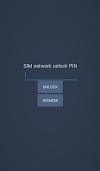There is a lot of complexity in the link. This link is often used for spamming and scamming.
Suppose a hacker wants to hack an account. He gave you a link in the inbox. And you clicked it. This way you can lose your account. Hackers are very powerful.
The link is sent in two ways:
One, The exact link of any one page is sent to the website. There are several slashes (/) that have separated the main page and subpages.
Two, The web address can be sent short even.
The complexity of sending addresses short is that you will not have any understanding that it is a secure website or you are going to be infected with malware or malicious. And just because before entering these sites it is necessary to check the URLs that they are not really a secure website.
Yes friends, today you will introduce some of your sites to which you can easily experiment with any link. Through it, it is possible to prevent spamming, scamming too much.
1. (Avg Threatlabs)
This is the best tool to check unsafe links. This can verify any link that the website link has any malware. You only need to do one thing. And that is the URL to be installed and wait for the result.
AVG is a big name in the online security world and a well-known name. And in the same way they hold their names. You can rely on the results without any thought. There are also many more options in them, through which you can get important information about many websites.
2. (ScanURL)
Another way to check suspicious links is scan url. This completes your search with a secure HTTPS connection. And this site is an independent website. Although there are ads on the search result screen, its results are really great. However, from the results you can easily know whether you should enter the link. If the site is unsafe, you will not be allowed to enter it there. Many sites can check this way. You can even easily share the Result link with your friends.
3.(Kaspersky VirusDesk)
If you want to know about any link from one of the world's biggest security farm Kaspersky, you can effortlessly rely on their Kaspersky Virus desk. It works in two ways. It does not only check suspicious websites, but also scans many suspicious files. And it can be used very easily.
If you want to use Kaspersky Virus Desk, you will need to scan your URL. You can quickly find out if the URL is safe. Even if you suspect a URL, you also get the option of scanning more deeply. Even after searching, you can mail the results.
4.(PhishTank)
Other sites will check if there is malware, if phishtank checks whether the site is a phishing site. But the process of working is like the previous ones. If you think a URL is phishing, then enter it and check it out. If the site is already on the list then you will get the results quickly. Otherwise, you will be given a tracking number.
Sadly, it is very difficult to check the phishing link so fast. Because, at the same time it also checks malware. It actually helps someone identify a phishing site. Because, if any link as a phishing site is suspected, you have some knowledge about it already. And this site will confirm that information to you. And if you are hands-on, you can do the Contributions on the site.
5.(Google Transparency Report)
Though Google is not a major privacy organization in the world, they still have a service to check the link. You can also find results about it only in the UK Basel. That's why you can decide whether you should enter the site. Not only malware, but Google will also provide information about phishing sites.
Ticker
6/recent/ticker-posts
More Post
 Tech News
Tech News
New rules for earning from YouTube.
satechnicals
January 18, 2018
YouTube is getting tough to display ads on YouTube At the same time, the critics of…
Ad
Contact Form
Blog Archive
Recent Posts
Ad
Popular Posts
Random Posts
3/random/post-list
Popular Posts

FRP Bypass APK Download
August 26, 2020

Unlock Network PIN/CODE by IMEI
November 07, 2020

Microsoft's warning on installing Chrome and Firefox in Windows 10.
September 15, 2018
Menu Footer Widget
Created By SoraTemplates | Distributed By Blogger Theme Developer









0 Comments